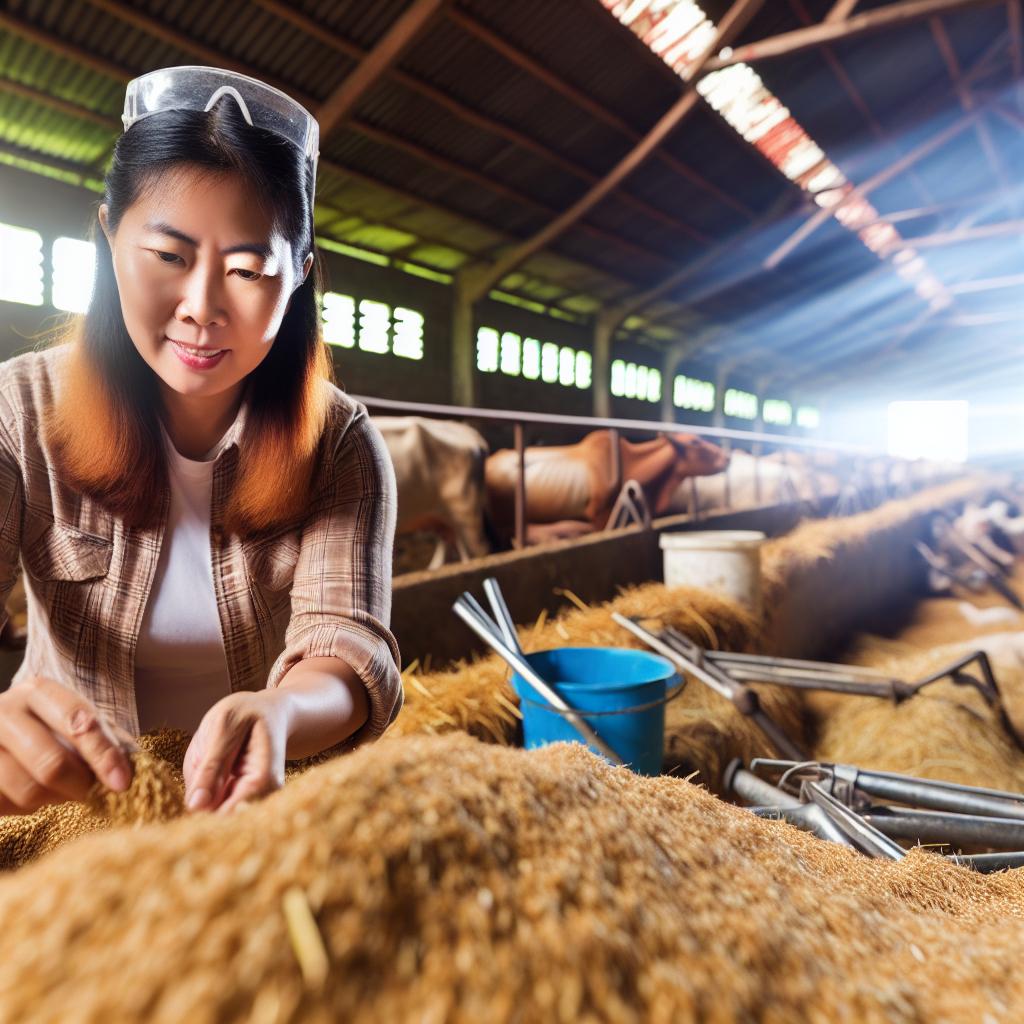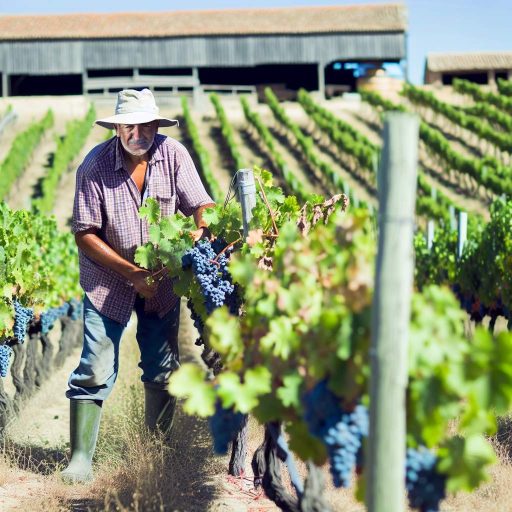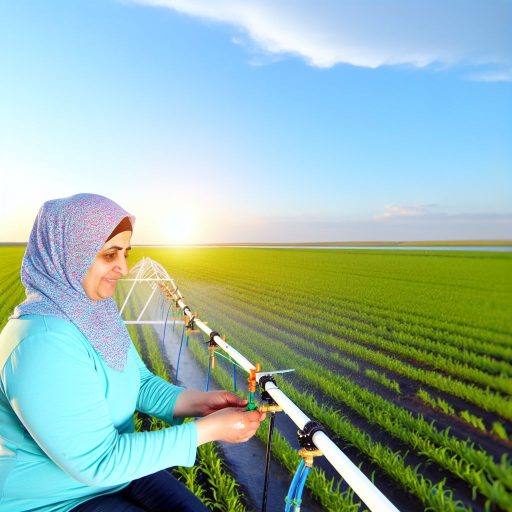Introduction:
Defined Role: Animal nutritionists play a crucial role in livestock breeding by formulating balanced diets.
Importance of Nutrition: Proper nutrition is essential for the health and productivity of livestock.
Responsibilities of Animal Nutritionists in Livestock Breeding:
- Formulating balanced diets for different types of livestock
- Analyzing nutrient requirements for optimal growth and productivity
Animal nutritionists play a crucial role in livestock breeding.
They ensure that animals are provided with the necessary nutrients for growth, reproduction, and overall health.
Their responsibilities go beyond simply feeding animals.
They extend to formulating specialized diets tailored to the specific needs of different types of livestock.
Formulating Balanced Diets for Different Types of Livestock
One primary responsibility of animal nutritionists in livestock breeding is formulating balanced diets.
These diets must meet the nutritional requirements of various animals such as cows, pigs, sheep, and poultry.
They must consider factors like age, breed, weight, and production stage.
This approach ensures optimal health and productivity.
Animal nutritionists analyze the nutritional content of different feed ingredients.
They develop diets that provide the right balance of proteins, carbohydrates, fats, vitamins, and minerals.
Additionally, they take into account the animal’s digestive system, metabolism, and environmental conditions.
This enables them to create diets that promote growth, maintain health, and support reproductive performance.
By formulating balanced diets, animal nutritionists help prevent nutritional deficiencies or excesses.
Such issues can lead to health problems, reduced growth rates, reproductive issues, and decreased milk or meat production.
They work closely with livestock producers, veterinarians, and feed manufacturers.
This collaboration optimizes feeding programs and ensures that animals receive the nutrients they need for optimal performance.
Analyzing Nutrient Requirements for Optimal Growth and Productivity
Another key responsibility of animal nutritionists in livestock breeding is analyzing the nutrient requirements of animals.
This analysis is essential at different life and production stages.
Transform Your Career Today
Unlock a personalized career strategy that drives real results. Get tailored advice and a roadmap designed just for you.
Start NowThey conduct research, experiments, and nutritional assessments.
These practices determine the specific needs of animals based on factors like age, weight, breed, and activity level.
Animal nutritionists evaluate the quality and quantity of feed ingredients.
They assess the digestibility of nutrients and the bioavailability of essential vitamins and minerals.
This evaluation leads to the creation of diets supporting healthy growth, efficient reproduction, and maximum productivity.
They consider the energy requirements of animals for maintenance, growth, gestation, and lactation.
Moreover, they account for the amino acid requirements for protein synthesis and muscle development.
By analyzing nutrient requirements, animal nutritionists help optimize feeding programs.
This optimization enhances animal performance while reducing feed costs.
It also improves overall efficiency in livestock production.
They stay updated on the latest research, technologies, and trends in animal nutrition.
This ongoing education allows them to refine and improve feeding strategies for livestock breeding operations.
Animal nutritionists play a vital role in livestock breeding.
Formulating balanced diets and analyzing nutrient requirements ensure that animals are healthy, productive, and thrive.
Their expertise and knowledge help livestock producers optimize feeding programs.
This optimization improves animal performance and enhances the profitability and sustainability of their operations.
Conducting Research and Experiments:
Animal nutritionists play a crucial role in livestock breeding by conducting research and experiments to improve the overall health and reproduction rates of animals.
Testing New Feed Ingredients for Livestock:
- They are responsible for evaluating the nutritional value of different feed ingredients to create balanced diets for livestock.
- By testing new feed ingredients, animal nutritionists can enhance the quality of feed provided to animals, leading to better growth and productivity.
- They analyze the impact of various feed components on animal digestion, metabolism, and overall well-being to ensure optimal nutrition.
Studying the Impact of Different Diets on Animal Health and Reproduction:
- Animal nutritionists conduct studies to understand how different diets affect animal health, fertility, and reproduction rates.
- By examining the effects of various diets on animals, nutritionists can recommend specific nutritional plans to improve breeding outcomes.
- They monitor the health and reproductive performance of animals fed with different diets to assess the effectiveness of nutritional strategies.
Research and experiments conducted by animal nutritionists contribute to advancing livestock breeding practices and ensuring the well-being of animals in agricultural settings.
Transform Your Career Today
Unlock a personalized career strategy that drives real results. Get tailored advice and a roadmap designed just for you.
Start NowTheir findings help farmers and breeders make informed decisions regarding animal nutrition, ultimately leading to improved breeding success and overall herd health.
See Related Content: Tips for Troubleshooting Common Farm Equipment Issues
Collaborating with Other Professionals:
Animal nutritionists often work with veterinarians to address nutritional deficiencies in livestock.
By collaborating with veterinarians, nutritionists can create a well-rounded care plan for the animals.
Veterinarians can provide valuable insights into the health status of the animals and recommend specific nutrient supplements.
Together, these professionals can ensure the overall well-being and optimal health of the livestock.
Consulting with Livestock Farmers:
Animal nutritionists also consult with livestock farmers to customize feeding programs based on specific needs.
Farmers rely on nutritionists to create balanced diets that meet the nutritional requirements of their livestock.
By understanding the unique needs of each farm, nutritionists can tailor feeding programs to maximize productivity.
Working closely with farmers allows nutritionists to address any concerns or challenges that may arise in livestock breeding.
Discover More: Educational Path to Becoming a Rangeland Manager
Monitoring and evaluating feeding programs:
Animal nutritionists play a crucial role in livestock breeding by monitoring and evaluating feeding programs.
This involves observing animals for any signs of malnutrition or digestive issues and making necessary adjustments to their diets to ensure optimal health and growth.
Observing animals for signs of malnutrition or digestive issues
One of the key responsibilities of animal nutritionists in livestock breeding is to closely monitor the animals in their care for any signs of malnutrition or digestive issues.
This includes observing their physical condition, behavior, and overall health to identify any potential problems.
Nutritionists will look for signs such as weight loss, poor coat condition, digestive discomfort, and abnormal behavior.
By conducting regular assessments and physical examinations, they can quickly detect any issues that may be affecting the animals’ well-being.
Adjusting diets as needed to ensure optimal health and growth
Once any signs of malnutrition or digestive issues are identified, animal nutritionists will work to adjust the animals’ diets accordingly.
This may involve modifying the types or quantities of feed they receive, supplementing their diet with additional nutrients, or making changes to their feeding schedule.
By carefully tailoring the animals’ diets to meet their specific nutritional needs, nutritionists can help ensure that they remain healthy and continue to grow and develop as desired.
Transform Your Career Today
Unlock a personalized career strategy that drives real results. Get tailored advice and a roadmap designed just for you.
Start NowThis proactive approach to feeding programs is essential for maximizing the overall productivity and performance of the livestock.
Monitoring and evaluating feeding programs is a critical aspect of the role of animal nutritionists in livestock breeding.
By observing animals for signs of malnutrition or digestive issues and adjusting their diets as needed, nutritionists can help ensure the optimal health and growth of the animals in their care.
Find Out More: Networking Tips for Aspiring Pest Control Advisors
Implementing Sustainable Practices
Promoting environmentally friendly feeding methods can help reduce the impact of livestock breeding on the environment.
By using organic feeds and minimizing the use of chemicals, animal nutritionists play a crucial role in sustainability.
Developing Strategies to Reduce Waste and Improve Efficiency in Feed Production
Animal nutritionists can work with feed manufacturers to optimize production processes and minimize waste.
They can also formulate balanced diets that meet the nutritional needs of livestock while minimizing feed wastage.
By implementing innovative feeding techniques, such as precision feeding, nutritionists can ensure that animals receive the right amount of nutrients without excess.
Utilizing technology, such as feed additives and enzymes, can also improve feed efficiency and reduce waste.
Collaborating with farmers to implement best practices in feed management can further enhance efficiency and sustainability.
Importance of Animal Nutritionists in Sustainability
Animal nutritionists play a vital role in promoting sustainable practices in livestock breeding by advocating for environmentally friendly feeding methods and developing strategies to reduce waste and improve feed production efficiency.
Their expertise and guidance are essential for ensuring the well-being of livestock and the preservation of the environment.
Find Out More: Using Hands-On Learning in Agricultural Education

Animal Nutritionists in Livestock Breeding
Animal nutritionists play a crucial role in livestock breeding.
They ensure that animals receive the proper nutrients to optimize growth, reproduction, and overall health.
Educating Livestock Farmers
- Providing training on proper feeding practices is essential for animal nutritionists.
- Sharing knowledge about the latest research and advancements in animal nutrition allows farmers to stay informed.
By educating livestock farmers, animal nutritionists can help improve the overall health and productivity of the animals.
Proper nutrition is vital for ensuring that livestock reach their full genetic potential.
Animals produce high-quality products such as milk, meat, or eggs.
Animal nutritionists work closely with farmers to develop customized feeding programs.
Transform Your Career Today
Unlock a personalized career strategy that drives real results. Get tailored advice and a roadmap designed just for you.
Start NowThese programs take into account the specific nutritional requirements of different species and production goals.
They analyze the nutrient content of feed ingredients and formulate balanced diets.
Feeding strategies are adjusted based on the changing needs of the animals.
Monitoring Animal Health and Performance
In addition to designing feeding programs, animal nutritionists also monitor the health and performance of livestock.
Conducting regular nutritional assessments helps identify deficiencies or imbalances in the animals’ diets.
They can make adjustments as needed to prevent health issues and optimize growth.
Animal nutritionists collaborate with veterinarians and other livestock experts.
They assess the overall health of the animals and address any concerns related to nutrition.
They may conduct blood tests, fecal analyses, or body condition scoring to evaluate nutritional status.
They then make recommendations for improvement.
Research and Development
Animal nutritionists are at the forefront of research and development in the field of animal nutrition.
They conduct experiments, trials, and studies to improve feeding practices.
New feed ingredients are developed to enhance nutritional value.
By staying informed about the latest research findings, animal nutritionists provide valuable insights.
These insights help livestock farmers implement innovative feeding strategies.
Such strategies promote optimal animal health and performance.
Animal Nutritionists in Livestock Breeding
Animal nutritionists play a crucial role in livestock breeding.
They contribute to the success of breeding programs in various ways.
Enhancing Reproductive Performance
Animal nutritionists help enhance reproductive performance in livestock.
They create tailored nutrition programs for this purpose.
Transform Your Career Today
Unlock a personalized career strategy that drives real results. Get tailored advice and a roadmap designed just for you.
Start NowThese programs ensure that animals receive the right balance of nutrients.
This support optimizes fertility and breeding success.
Improving Overall Herd Health
Animal nutritionists focus on improving the overall health of the herd.
They formulate balanced diets, meeting specific nutritional needs.
This approach helps prevent diseases and ensures optimal health.
A healthy herd is likely to produce healthy offspring.
This contributes to the long-term success of the breeding program.
Essential Role of Animal Nutritionists in Livestock Breeding
Animal nutritionists play a crucial role in livestock breeding by formulating specialized diets for different livestock species.
Their expertise ensures that animals receive the necessary nutrients for optimal health and productivity.
By carefully monitoring the nutritional needs of livestock, nutritionists contribute to the overall success of the livestock industry.
Their knowledge helps in preventing diseases and deficiencies, leading to improved growth rates and reproductive performance in livestock.
Animal nutritionists are essential in sustaining the health and productivity of livestock industries through their expertise in formulating balanced diets.




